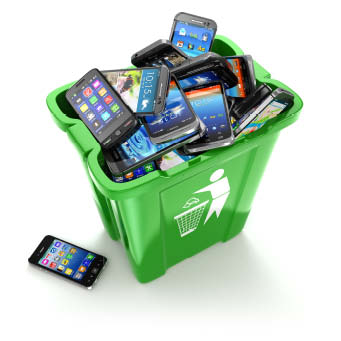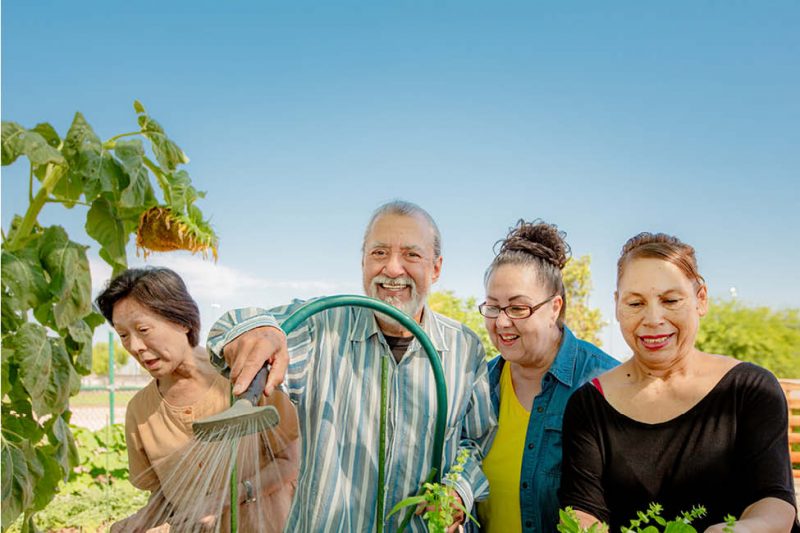Sustainability is a word you hear often in Australia, but what does it really mean?
Basically, sustainability is an acknowledgement that humans rely on our natural environment, in some capacity, for all the resources we need. When we make an effort to live more sustainably, what we are essentially doing is ensuring that we will be able to preserve the resources in our environment. This is important, because future generations will need to be able to continue relying on the earth’s resources in the years ahead.
Let’s take a look at what, exactly, seniors can do to live more sustainably in 2020 and the years beyond.
1. Buy the Highest Quality, Longest Lasting Items You Can Afford
You have many choices when you buy a new item. Some choices are high-quality ones that will last for a long time – and some aren’t.
There tends to be a correlation between price and quality. Of course, there isn’t any guarantee that a high-priced item will always be a high-quality one. But, it’s quite likely that a super cheap item isn’t going to be the best-quality choice. Many times, when you buy the cheapest item, it ends up breaking. This is particularly true of tools and gadgets.
You can avoid clogging landfills with broken rubbish by investing in high-quality tools and other items rather than cheap, low-quality ones.
If you can’t afford a high-quality item, you have options other than buying a cheap one. Borrow one from a friend; hire one from a rental company; buy one secondhand; or barter one for something you have and no longer need.
2. Prioritise Composting Over Binning
Composting transforms waste materials such as kitchen scraps, soiled tissues and used paper towels into beneficial natural soil amendments. You can use the finished compost in your garden or potted houseplants, or gift it to a friend if gardening isn’t for you. Beyond that, composting can help to ease the strain on your local landfills – which would be beneficial for your entire community.
3. Recycle, But Think of It As a Last Resort

Recycling is a good thing; and, if you’re doing it, it’s definitely worth continuing. If you aren’t doing it yet, please consider recycling what you can. In addition to the usual curbside bin recycling system, there are multiple other things that can be recycled:
That said, you should be aware that recycling your unwanted items isn’t always as straightforward as you might think. In fact, the recycling industry in Australia has been in a state of crisis since at least 2017.
Prior to 2017, we shipped much of our rubbish to China, India and other countries for recycling. In 2017, when the Chinese decided to restrict their imports of rubbish materials, it sparked a recycling crisis here at home. The crisis deepened when India decided to ban all imports of solid plastic waste materials, as we’d also been exporting rubbish plastics to India.
We do currently have some recycling facilities here in Australia, and we’re able to successfully recycle some things; however, we don’t have the amount of infrastructure it would take to deal with all our own recyclable rubbish here at home. One problem is that there is a mismatch between the amount of rubbish materials we generate and the amount of them that we actually have the capabilities to recycle into new products.
Many wonderful products can be made from recycled materials, but our manufacturing base is in a state of decline. In order to successfully recycle more, we would also have to figure out how to create more demand for the recycled raw materials. The most straightforward way to accomplish that would be to revitalise our manufacturing base – and, specifically, we would have to be able to manufacture products that require inputs of exactly the types of materials we’re disposing of in our recycle bins.
It’s a complex problem. Government officials are working on it, but it will take time for them to implement the changes that will lead to viable long-term solutions.
So it’s crucial for everyone to understand that recycling, on its own, is not likely to immediately solve our waste problems. To solve the underlying problems, it will be necessary for us to consume less and to make more conscious choices overall – at least until our recycling issues are sorted.
For example, given a choice between buying a bar of soap packaged in a compostable cardboard box versus a body wash packaged in a recyclable plastic bottle, choosing the bar soap may be preferable (assuming you will actually compost the packaging) because it helps to alleviate the current bottleneck in recycling plastic bottles. But if you do opt to buy the bottle of body wash, of course, recycling the plastic bottle is better than not recycling it.
But if you do opt to buy the bottle of body wash, of course, recycling the plastic bottle is better than not recycling it. While individual efforts are no silver bullet, the small changes we make to live sustainable lives matter. However, rather than turn your house into eco-friendly overnight, start with simple green alternatives such as bamboo paper towels, bamboo toothbrushes etc.

4. Combine Errands
Extra trips to the store waste petrol and time. Shop with a menu plan in mind and a grocery list in hand to ensure you don’t forget to buy anything you need. Plan out all your errands so you can do them all in one trip if possible instead of making many trips.
These aren’t the only things you can do to live more sustainably. However, these are small things that aren’t terribly difficult to do; and each action you take can make a big difference towards a more sustainable community, country and world.
If you want even more suggestions for things you can do that will make a difference, check out the City of Sydney’s web pages on living more sustainably. They have fantastic suggestions for growing your own food at the local community gardens; learning about organic principles at Sydney City Farm; cutting energy costs and more.






1 Comment
great tips here, will use the ewaste place